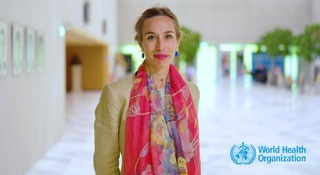
Ms Pernette BOURDILLON ESTEVE
country: France/Switzerland
PhD topic
Making health and non-health focused datasets interoperable to gain actionable insights on the dynamics between substandard/falsified (SF) medical products, diseases, and populations.
PhD supervisors
- Prof. Antoine Geissbuhler
- Prof. Pascal Bonnabry
Diplomas
- Masters: Political science (development economics)
- Bachelors: Public health (management of health structures)
Biography
Pernette Bourdillon Esteve has 15 years’ international public health experience, at both global policy and technical levels. Her expertise covers strategy and policy development, data analysis, incident management, and training.
At WHO she is responsible for the management and analysis of the Global Surveillance and Monitoring System’s (GSMS) database. The GSMS serves both as an intelligence database on substandard-falsified medical products and an incident management tool, in order to support national regulatory authorities.
Before WHO, Pernette worked for the UN Office against Drug and Crime, UNITAID, French Foreign Affairs, and private sector.
Mother of two, speaks French+English, gets by in Spanish, loves any outdoor activities/sports, practices amateur theatre, insterested in History and enjoys long discussion with friends.
why is this phd important for me ?
The Global Surveillance and Monitoring System (GSMS) database has been gathering data on substandard-falsified medical products since 2013 : in order to fully exploit its potential, I wanted to increase my technical skills and ensure I am applying a rigorous scientific approach. Through the technical courses I hope to improve my knowledge and skills regarding data analysis, data management and interoperability, etc. and through the PhD structure / supervision, I want to make sure that the skills are logically applied for practical use / projects. For example, ongoing research on automating prioritization of incoming incidents through standardized risk assessment could subsequently be adapted an adopted by national regulators authorities. There is also potential to leverage different data sources to monitor risk factors (driving forces) or substandard-falsified medical products so as to better identify – and then protect – most vulnerable groups. The GSMS has significant potential value as a public health good, in particular for health surveillance and protection, and also for emergency prediction, prepardness and response. I hope the PhD will give me wider opportunities to work more on practical applications of data, either within the context of the GSMS, or beyond. Striving towards the best possible quality in my work is really very important to me, so the PhD programme will (hopefully!) push me to be better in technical areas but also in the conceptual development of projects and policies.
Why did I choose this phd program?
I was attracted to the ISG doctoral program because of how it is tailored to working professionals: the courses’ schedule is flexible and the choice of subjects is varied, and there is a focus on practical subjects. It was essential for me to not only continue working but to be able to apply my research to my professional tasks / duties. I also see it as an opportunity to better integrate the national / local network of public health practice in Switzerland. Access to the technical expertise / resources of the wider University of Geneva is much appreciated, for example the data science competences center, is an advantage. Access to the vibrant global health community in Geneva is also a wonderful opportunity to make connections beyond one’s own team and expand our perspectives.
